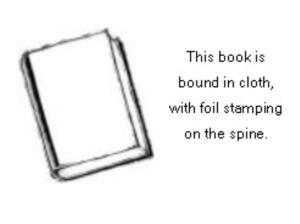Bush's War
Media Bias and Justifications for War in a Terrorist Age
Nonfiction, Social & Cultural Studies, Social Science| Author: | Jim A. Kuypers | ISBN: | 9780742572294 |
| Publisher: | Rowman & Littlefield Publishers | Publication: | October 10, 2006 |
| Imprint: | Rowman & Littlefield Publishers | Language: | English |
| Author: | Jim A. Kuypers |
| ISBN: | 9780742572294 |
| Publisher: | Rowman & Littlefield Publishers |
| Publication: | October 10, 2006 |
| Imprint: | Rowman & Littlefield Publishers |
| Language: | English |
Immediately after the attacks of September 11, 2001, Americans looked to President Bush for words of leadership. In his most formal reply of the day, he said, 'Today, our fellow citizens, our way of life, our very freedom came under attack in a series of deliberate and deadly terrorist acts. The victims were in airplanes, or in their offices; secretaries, businessmen and women, military and federal workers; moms and dads, friends and neighbors. Thousands of lives were suddenly ended by evil, despicable acts of terror.' The stark tone of Bush's speech suggested the promise of more words to come from the president, and it is these words that Bush's War addresses. While many books have offered a take on the attacks of 9/11 and their impact upon American society, one area has been comparatively ignored: presidential justifications for war in the age of terrorism. Specifically, what did President Bush say to justify American military actions in the postD9/11 world? And how did the public hear what he said, especially as it was filtered through the news media? The eloquent and thoughtful Bush's War shows how public perception of what the president says is shaped by media bias. Jim A. Kuypers compares Bush's statements with press coverage, arguing that the nature of American public knowledge concerning our role in the world has been changed_not by 9/11, but by the subsequent argumentative back-and-forth between Bush and the press.
Immediately after the attacks of September 11, 2001, Americans looked to President Bush for words of leadership. In his most formal reply of the day, he said, 'Today, our fellow citizens, our way of life, our very freedom came under attack in a series of deliberate and deadly terrorist acts. The victims were in airplanes, or in their offices; secretaries, businessmen and women, military and federal workers; moms and dads, friends and neighbors. Thousands of lives were suddenly ended by evil, despicable acts of terror.' The stark tone of Bush's speech suggested the promise of more words to come from the president, and it is these words that Bush's War addresses. While many books have offered a take on the attacks of 9/11 and their impact upon American society, one area has been comparatively ignored: presidential justifications for war in the age of terrorism. Specifically, what did President Bush say to justify American military actions in the postD9/11 world? And how did the public hear what he said, especially as it was filtered through the news media? The eloquent and thoughtful Bush's War shows how public perception of what the president says is shaped by media bias. Jim A. Kuypers compares Bush's statements with press coverage, arguing that the nature of American public knowledge concerning our role in the world has been changed_not by 9/11, but by the subsequent argumentative back-and-forth between Bush and the press.















